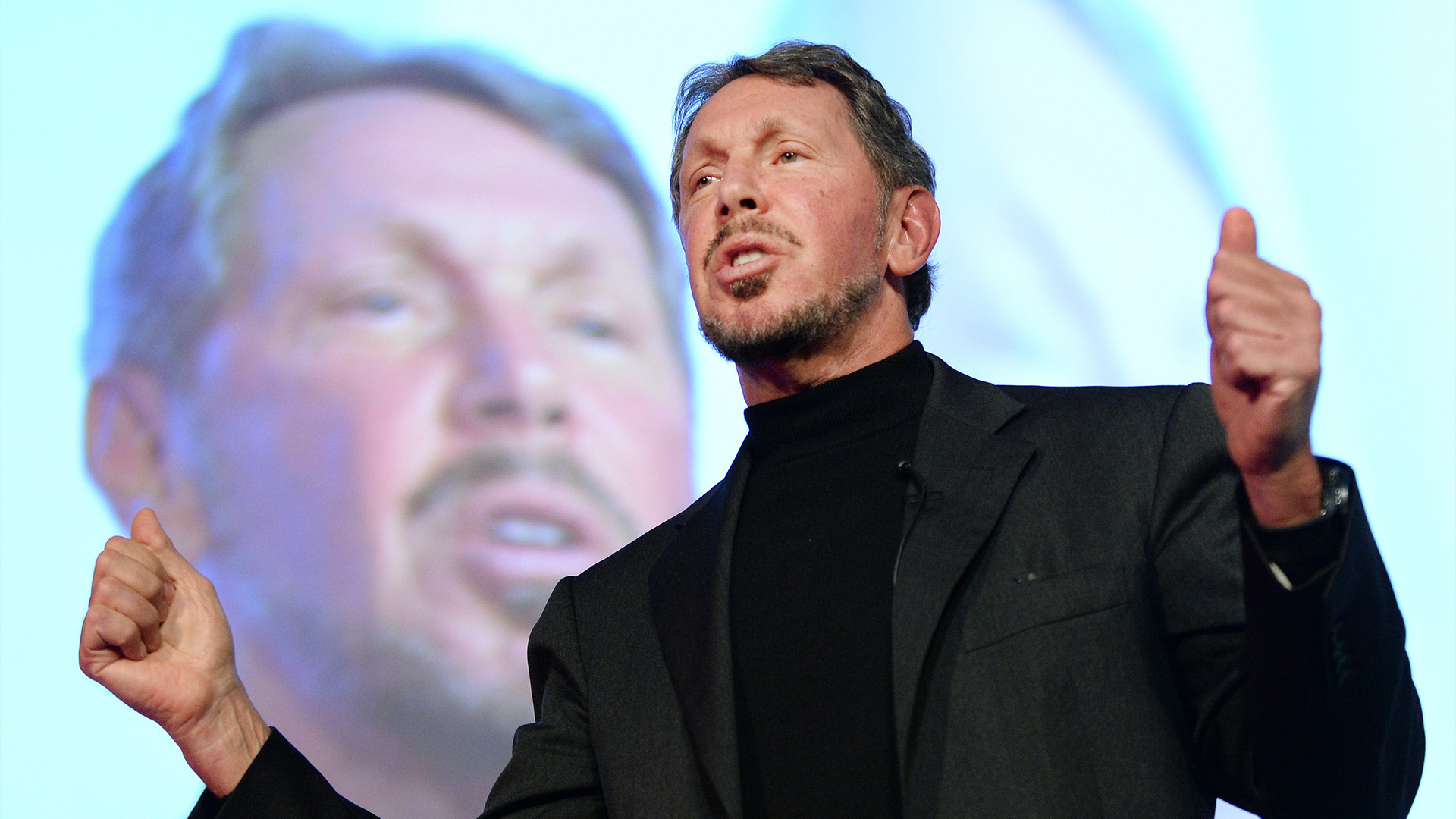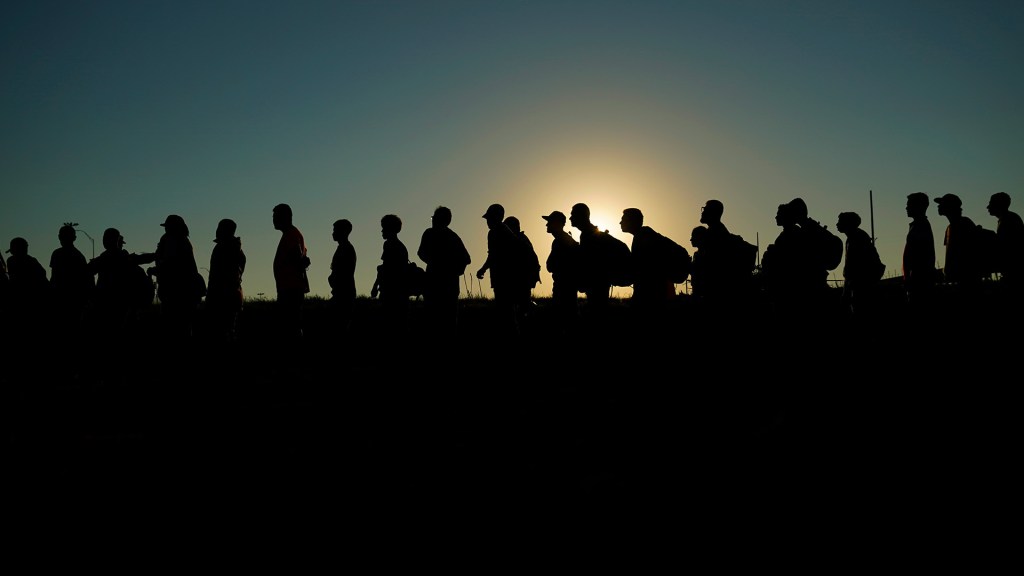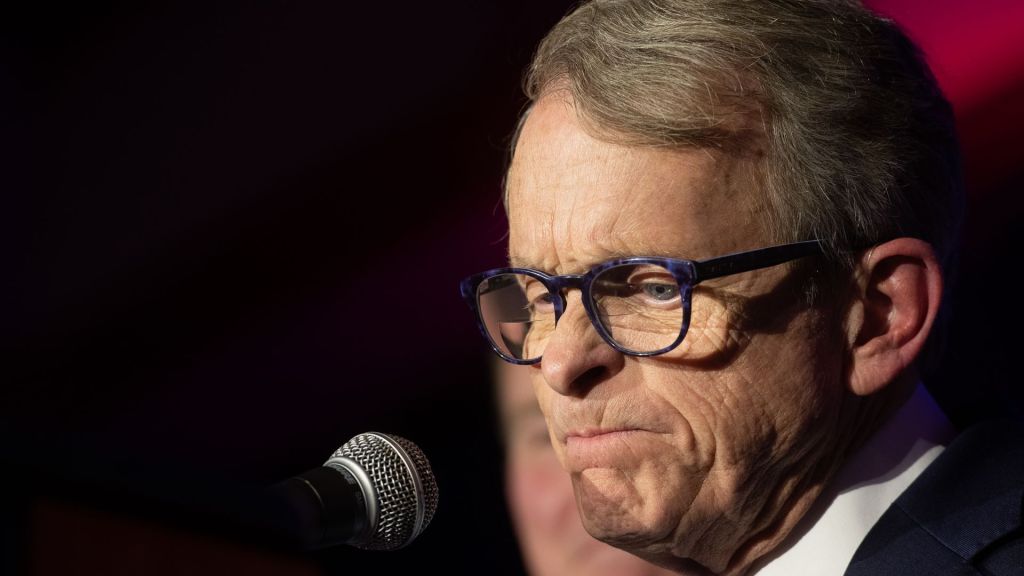
SIMONE DEL ROSARIO:
Don’t get comfy, Jeff Bezos. Larry Ellison is coming after your seat as the second-richest person in the world.
Ellison already dethroned Bezos earlier this week, and now they’re in a bit of a back-and-forth.
If you’re wondering, who is Larry Ellison and how did he get his $200 billion? It’s a fair question.
Of the Top 10 richest people on the planet, chances are you know the rest of their names very well or at the very least, you know their companies.
Ellison and Oracle are a bit of an enigma.
80-year-old Larry Ellison is the chairman and chief technology officer at Oracle. According to his bio, he also races sailboats, flies planes, and plays tennis and guitar. He co-founded Oracle back in 1977, so we’re playing the long game here.
LARRY ELLISON:
I decided on the computer business. In college, I started working, working part time programming. I found that. I found it in a very short period of time, I could make more money writing programs than a tenured professor at the University of Chicago was making. And I was a teenager, and I said, this is kind of cool, and it was also fun. It was like big game. It was like working on puzzles. So I enjoyed it. It paid extremely well.
SIMONE DEL ROSARIO:
Well enough to eventually become the second-richest person on the planet!
If Oracle sounds somewhat familiar from the news cycle, that’s probably because they are the ones that store TikTok’s U.S. data. It was a concession Chinese-parent-company ByteDance made to try to prevent TikTok from being banned in the U.S. TBD on that effort, TikTok was in court just this week arguing its case.
So they’re not rich off TikTok storage, what’s the game? Oracle stock is up 20% this month, partly because of an AI play.
Ellison says the company is building data centers to meet the booming demand for generative AI.
LARRY ELLISON:
So we are literally building the smallest, most portable, most affordable cloud data centers all the way up to 200-megawatt data centers, ideal for training very large language models and keeping them up to date. This AI race is going to go on for a long time.
SIMONE DEL ROSARIO:
In the past year, Oracle has announced data partnerships with Amazon, Microsoft and Google, three major companies in the AI race.
LARRY ELLISON:
This is like formula one. What do I mean by that? There’s really not one winner. You have three people on the podium. But there’s really kind of one winner. Someone’s going to be better at this than anybody else. And multiple people are trying. And there is a race.
SIMONE DEL ROSARIO:
And as this race ramps up, one major problem in need of a solution is coming into play: storage. Generative AI requires huge amounts of data for teaching the technology. And that’s where Oracle hopes to swoop in.
I’ll leave you with this insight on Ellison’s business model from nearly 30 years ago. I’d say, even today it encapsulates what Oracle is going after. For SAN, I’m SDR.
LARRY ELLISON:
Why not have computer networks that are similar to television networks or telephone networks? A television network is enormously complicated. It’s got satellites and micro relay stations and cable head ends and recording studios, and you have this huge, professionally managed network accessed by a very low cost and simple appliance, the television. Anyone can learn to use a television. 97% of American households have televisions. 94% of American households have telephones. Telephone, again, a very simple appliance attached to enormously complex, professionally managed network. Why shouldn’t the computer network be just the same?







